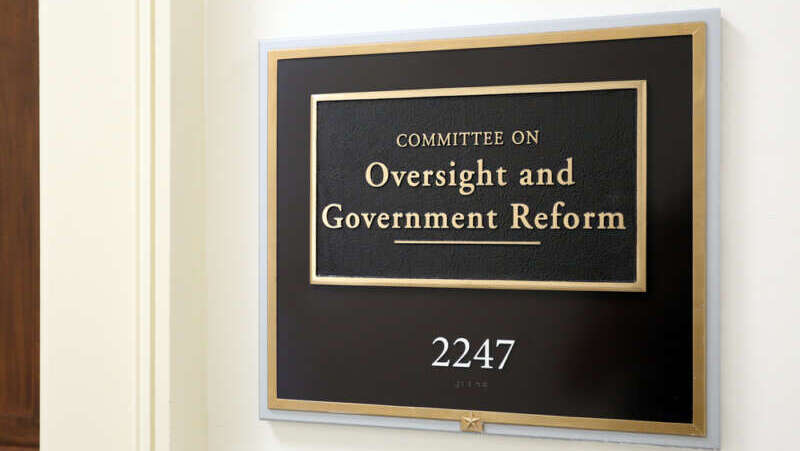
Legislation that would grant President Donald Trump the authority to reorganize the Federal government passed out of the House Oversight and Reform Committee on Tuesday and is now headed to a full House vote.
The Reorganizing Government Act of 2025, or H.R. 1295, from committee Chairman James Comer, R-Ky., was passed by a 23-20 party-line vote and would allow Trump to develop and submit a plan for reorganizing Federal agencies. Congress would be required to vote on the plan within 90 days and is not subject to a filibuster – allowing the Senate to pass the plan with a simple majority instead of the usual 60-vote requirement.
Democrats voiced strong opposition to the legislation during the committee’s markup session yesterday, with Ranking Member Gerry Connolly, D-Va., saying that the legislation would create a pathway for Trump and White House advisor Elon Musk “to get their reckless actions blessed by Congress.”
“They will abolish whole departments and agencies,” Rep. Connolly said during the session. “With a simple majority vote in the House and the Senate, they will wipe away statutory protections authorized by Congress. Trump would be able to use this power to eliminate statutory programs through his reorganization plans, a feature that was expressly prohibited by Congress in the past.”
Presidents in past administrations had limited reorganizational power – now lapsed – that the act seeks to restore, though they could not abolish or transfer executive departments or independent Federal agencies. The reauthorization voted out of committee by Republicans yesterday would provide Trump with those powers through Dec. 31, 2026.
While the plan would be “filibuster-proof,” as Rep. Connolly called it, the legislation would need 60 votes for the Senate to pass it.
Other legislation that advanced out of the committee by a party-line vote includes the Preserving Presidential Management Authority Act, H.R. 2249, which would allow the president to terminate collective bargaining agreements (CBAs) negotiated by Federal employee unions.
The act was introduced by Rep. Michael Cloud, R-Texas, and allows an incoming presidRep. Michael Cloudent to terminate provisions of CBAs signed prior to their term in office or that conflict with a newly issued presidential order.
“Collective bargaining agreements, or CBAs, are negotiated by Federal employee unions and frequently result in civil service policies that prevent poorly performing Federal employees from being held accountable and conflict with the policy priorities of newly elected presidents,” Chairman Comer said when discussing the bill in yesterday’s markup.
That legislation also came under fire by Democrats during its markup, who deemed it another attack on Federal unions in an attempt to eliminate them.
